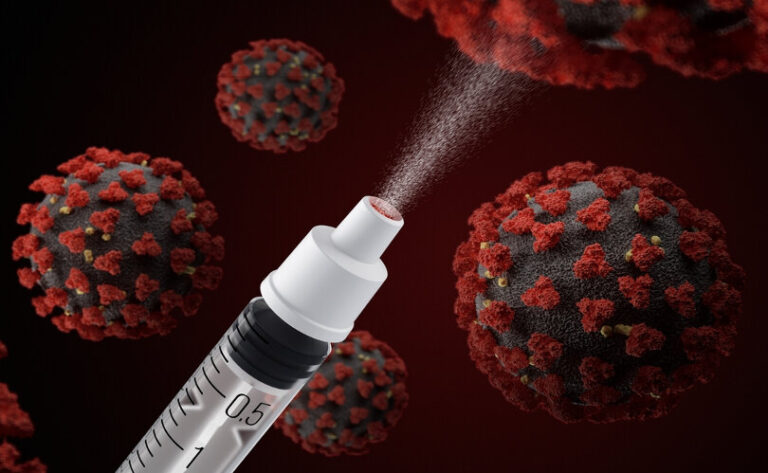Biden Administration Seeks More Attorneys to Defend Against Vaccine Lawsuits

Expansion of office dealing with vaccine injury claims met with praise.
President Joe Biden’s administration is beefing up the office that defends vaccine injury lawsuits.
According to a recent job posting, the United States Department of Justice (DOJ) is expanding the vaccine litigation section in its Office of Constitutional and Specialized Tort Litigation.
Vaccine manufacturers are largely immune under the National Childhood Vaccine Injury Act of 1986, while petitions claiming injury or death from vaccination are defended by the government and adjudicated by the United States Court of Federal Claims.
The tort office’s expansion is intended to “address workload created by an increase in cases filed under the Vaccine Act,” according to the DOJ’s announcement.
In the expansion, the DOJ is looking for eight lawyers, all of whom would be based in Washington.
They would handle claims submitted to the National Vaccine Injury Compensation Program, which the act established.
Renee Gentry, a member of the Vaccine Injured Petitioners Bar Association, welcomed the announcement but expressed disappointment that the U.S. Department of Health and Human Services (HHS) is not increasing the number of medical reviewers, or staffers who initially review the claims.
“The Petitioner’s Bar fully supports the DOJ and HHS fully staffing the program.” A similar announcement from HHS would be great to see for medical reviewers,” Ms. Gentry said via email to The Epoch Times.
According to Ms. Gentry, medical reviewers are currently taking 12 to 16 months to review cases “due to a lack of staff.”
HHS did not respond to a comment request.
Increase?
While the DOJ claimed that it was increasing the number of lawyers due to an increase in cases, claims have actually decreased since a peak in 2021.
According to government data, a record-high 2,057 petitions were filed in fiscal year 2021, but that number dropped to 1,029 in fiscal year 2022.
There were 1,167 claims in fiscal year 2023, the most recent full fiscal year.
The figures for fiscal years 2022 and 2023 are both lower than in previous years.
“The timing of the government’s announcement is certainly interesting given its justification,” said Elizabeth Brehm, a partner at Siri & Glimstad LLP, in an email to The Epoch Times. “It would have made more sense for the government to have taken action anytime from 2016 through 2021 when the numbers of petitions filed were generally and significantly increasing each year.”
The Department of Justice’s media office did not respond to a request for comment.
A query to a DOJ contact listed on the job listing resulted in an automated message directing people to another official. A query sent to that official was not returned.
During the COVID-19 pandemic, claims to a separate program, the Countermeasures Injury Compensation Program, have skyrocketed. The program includes COVID-19 vaccines, which have a number of side effects.
The Public Readiness and Emergency Preparedness Act of 2005 established the Countermeasures Injury Compensation Program. It is entirely managed by HHS, with no involvement from the DOJ.
When compared to the National Vaccine Injury Compensation Program, the countermeasures program makes it more difficult to obtain compensation, and the compensation is frequently less.
The COVID-19 vaccines cannot be transferred to the National Vaccine Injury Compensation Program until Congress approves an excise tax and the HHS secretary adds the vaccines to the Vaccine Injury Table.
Ms. Brehm speculated that the addition of more DOJ attorneys could be in anticipation of claims related to the COVID-19 vaccines being transferred to the national vaccine injury program, but that this “remains to be seen.”
Some advocates support moving the claims but, due to the lack of action, have joined a recent lawsuit filed by Siri & Glimstad LLP that claims the Countermeasures Injury Compensation Program is unconstitutional and requests that a federal court impose a slew of changes.
Proposed Modernization
A bill introduced this year in the United States House of Representatives would improve the National Vaccine Injury Compensation Program, among other things by adding more special masters, or judges who oversee petitions.
Even with the DOJ expansion and more HHS reviewers, “we still need the additional special masters in HR5142,” Ms. Gentry said in an email to The Epoch Times.
Despite the increase in cases over the years, the number of special masters is currently only eight.
The new bill would raise the maximum number of special masters from eight to at least ten, as well as allow special masters to spend more time in the position.
Thousands of claims are pending, and petitioners must typically wait years for their cases to be resolved. According to Ms. Gentry, the backlog is caused by an unchanged number of special masters and an increase in covered vaccines.
Reps. Lloyd Doggett (D-Texas), Earl Blumenauer (D-Ore.), and Lloyd Smucker (R-Pa.) introduced the bill.
Since the bill’s introduction in August, only Rep. Adrian Smith (R-NE) has expressed support for it.
Mr. Doggett and Mr. Smucker’s representatives did not respond to questions about whether there has been recent progress on the legislation and whether they would consider introducing a different bill if H.R. 5142 fails to advance.
In the 117th Congress, a previous version of H.R. 5142 died in the House.





